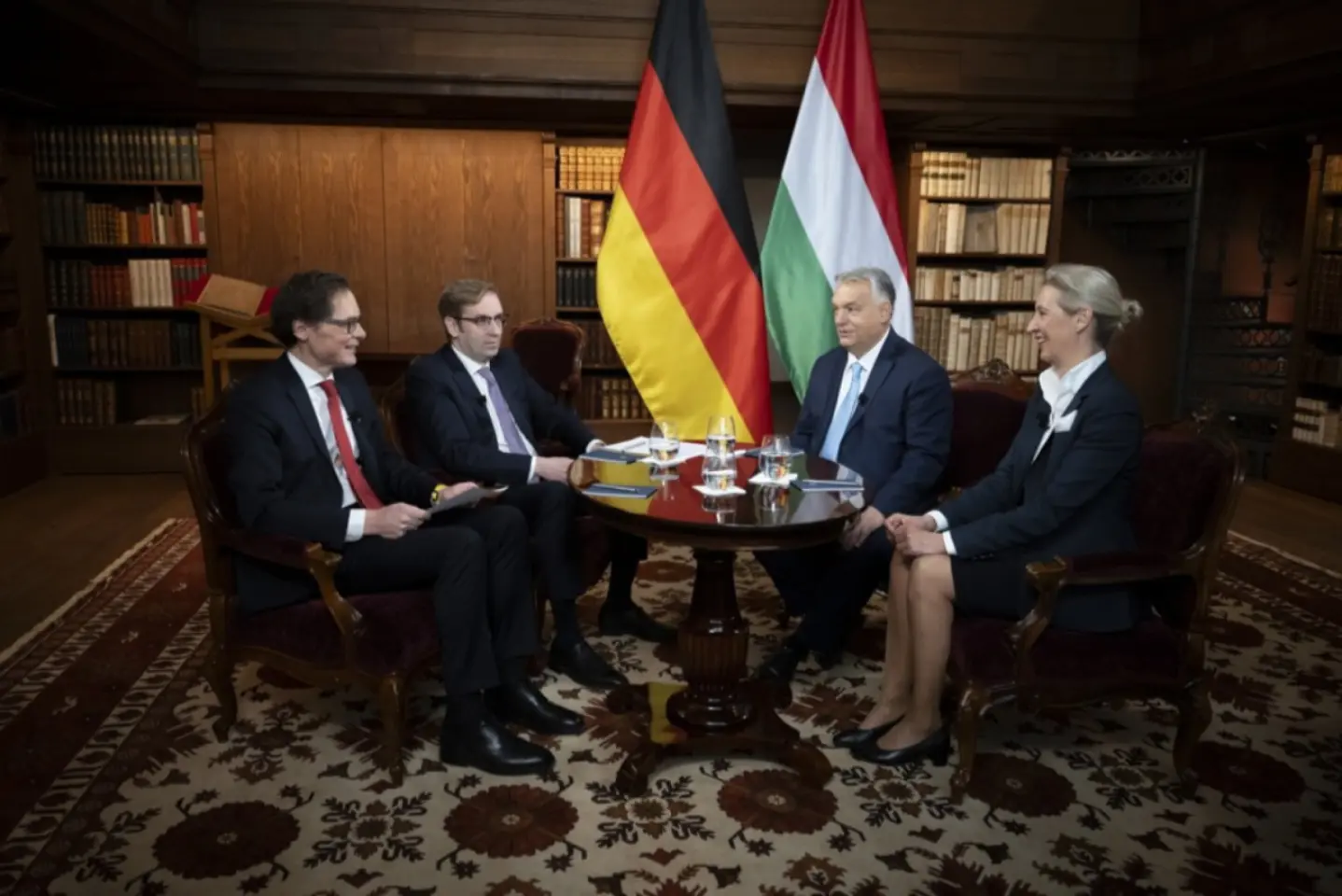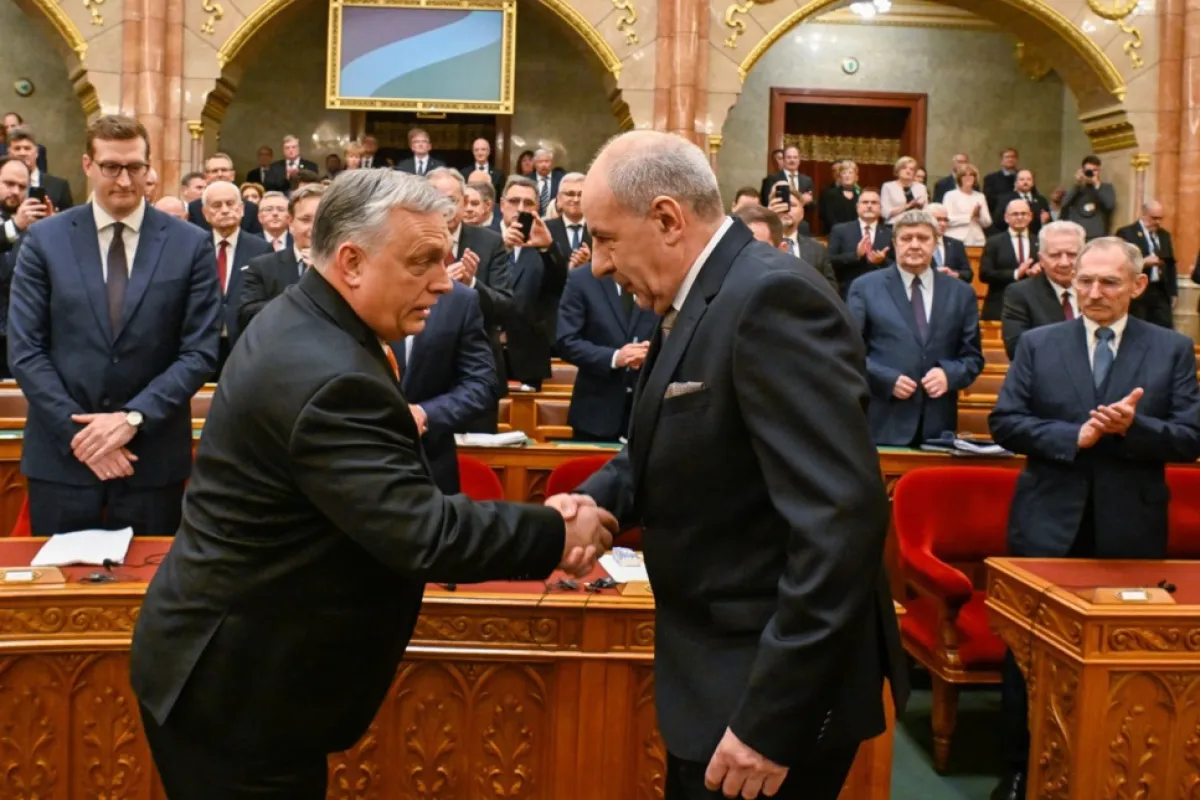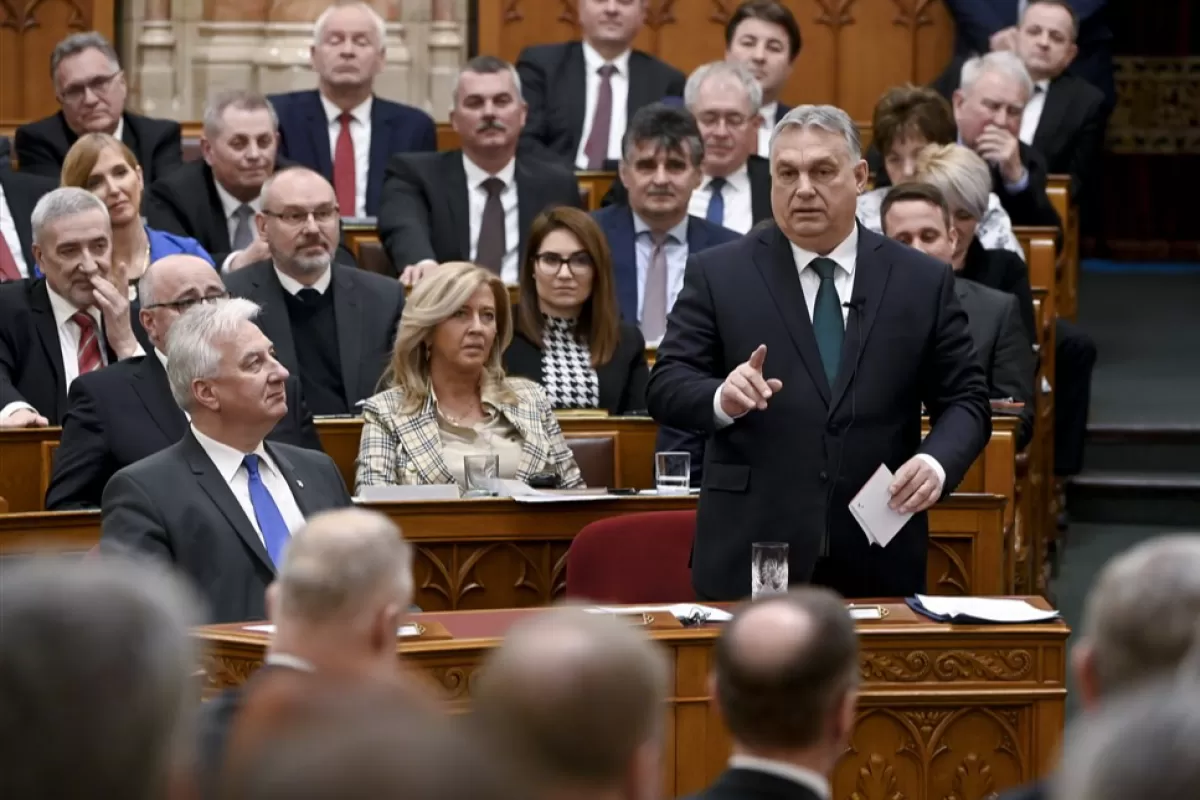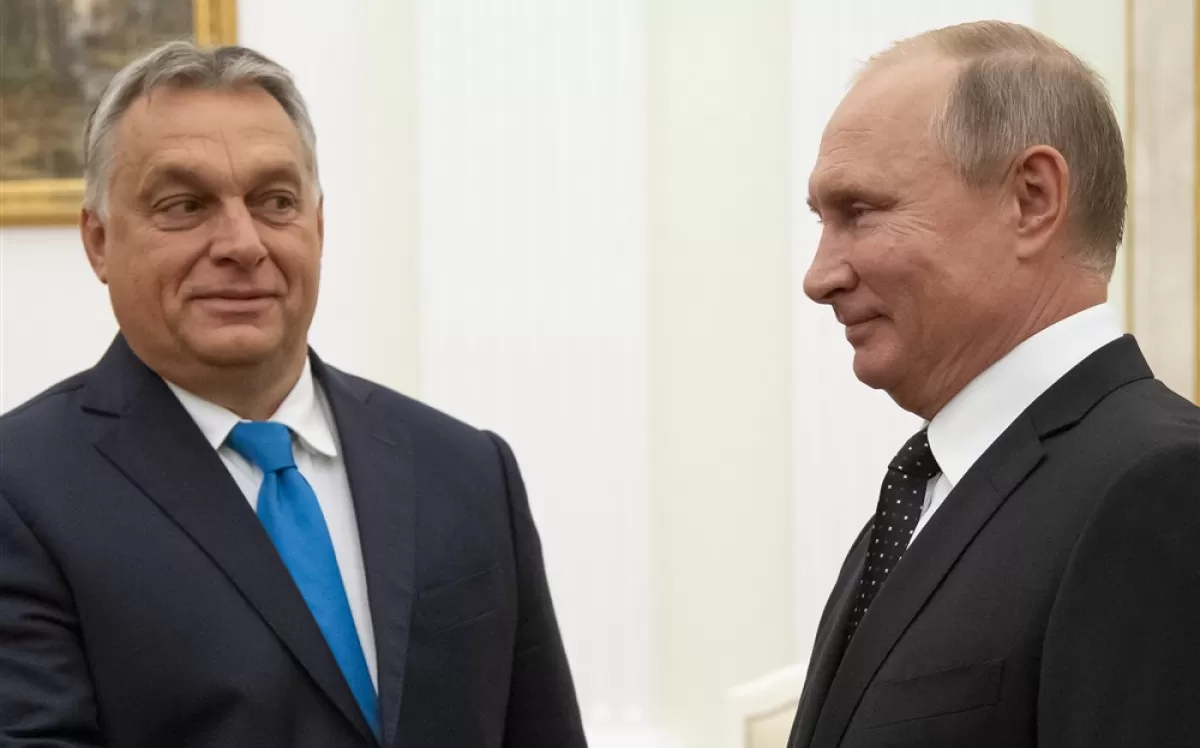
Viktor Orbán's ideology is promoted in Brussels at events organized by Mathias Corvinus Collegium, a university generously funded by the Budapest government.

George Simion wants to take over the MAGA image, and his good score in the presidential election has brought him to the attention of European extremists. However, a sovereignist policy would spell economic costs and political isolation for Romania.

A new word is gradually gaining traction across media and political debates: “sovereignists”. How does it all impact liberal democracy? To what extent can sovereignists influence EU politics?

The Ukrainian president rejects peace initiatives because the war is profitable for him, pro-Kremlin propaganda claims, ignoring the fact that by “peace”, the Russians understand Ukraine’s surrender.

Donald Trump (re)winning the White House could give a long-term boost to the far right in Europe, but it could also encourage the EU to rely more on itself.

Xi Jinping visited Europe to project the image of a strong China and announce investments in Serbia and Hungary, both pro-Russian countries. Later, Xi welcomed Putin to Beijing and promised him the help of China, which shares with Russia the vision of a "multipolar" world. But the visit seems, at least for now, to have had fewer concrete results than Xi's visit to Europe.

Georgia could restrict the rights of the LGBT community. The move would hinder the country’s European integration.

Hungarian Prime Minister Viktor Orban has slightly distanced himself from Russia for the first time since the invasion of Ukraine, but he has moved closer to the sovereigntists. This "dance" has very much to do with the interest in a post of European Commissioner.

Recent decisions show that Hungary's EU and NATO partners are fed up with Budapest’s boycott of common policies, anti-democratic drifts and its content playing into Russia’s hands. Although he claims that Russia is a viable alternative to the West, Vladimir Putin has few options to help his friend, Viktor Orban.

A Russian-inspired sovereigntist law proposed by Viktor Orban's party targets the press, civil society and the opposition. In parallel, FIDESZ promotes anti-EU messages in the election campaign.

Viktor Orbán’s aggressive speech delivered in the Hungarian Parliament is evidence of Hungary’s lack of solutions to an economic crisis amplified by Orbán’s own policy-making, as well as of its growing isolation at EU and NATO levels.

Prime Minister Viktor Orban finds himself in a complicated situation. Politically, he gets increasingly isolated from its Western partners. Hungary's economy is in crisis, and the European funds that could relaunch it have been blocked due to anti-democratic slippages. With all the friendship that Budapest has shown to Russia, there isn’t much Russia can do to help, being itself increasingly affected by Western sanctions. Orban's solution appears to be to block Finland and Sweden's entry into NATO until the EU unlocks funds for Hungary. However, this blackmail policy may have reached its limits.

Hungary has a “preferential” contract for its gas imports from Russia, but has now ended up paying more than other European states. Prices for fuel and Diesel have skyrocketed, and inflation has hit the highest mark at EU level. Besides, Budapest’s bypassing European regulations and values has prompted the European Commission to freeze €7 billion worth of EU funds to Hungary. All that spirals into an economic crisis generated, for its most part, by Viktor Orbán’s policies.

The decision of the four countries to leave the International Investment Bank (IIB), also known as the “Russian Spy Bank”, came within days of Russia invading Ukraine. The legal proceedings were cumbersome in certain countries, due to the financial risks such a move entailed. Set up in 1970, the Bank continues to operate today in Budapest, although key decisions are taken in Moscow.

Viktor Orbán is one of the longest-serving prime ministers in the history of Hungary. After three terms in office, he still enjoys widespread support. Illiberal policies, corruption allegations and the close ties with Russia doesn’t seem to affect Orbán’s odds to secure a fourth mandate of prime minister.